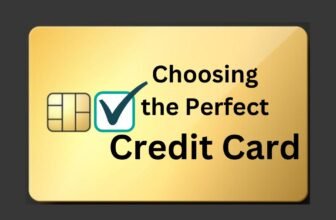
Using a business credit card for personal expenses can be tempting, especially in a pinch. But is it a smart move? While it may seem convenient to mix personal and business expenses, there are essential factors to consider. Breaching the line between personal and business transactions can have legal and financial implications for your business.
To avoid potential pitfalls, we will delve into best practices for using your business credit card responsibly. From setting clear boundaries between personal and business expenses to keeping accurate records, this article will provide practical tips to help you make the right choices.
Whether you’re a small business owner or an employee with a business credit card, understanding the guidelines and don’ts of using it for personal expenses is crucial. So, let’s dive in and navigate this gray area together.
Table of Contents
Understanding the purpose of a business credit card
A business credit card serves a specific purpose: to separate business expenses from personal ones. It provides a convenient way to track and manage your business-related transactions. A business credit card lets you easily monitor your company’s spending, streamline expense reporting, and enjoy benefits such as cashback or travel rewards.
However, it’s essential to remember that a business credit card is intended for business-related purchases only. Mixing personal expenses with business transactions can create complications and potentially put your business at risk. Understanding the boundaries and limitations of using a business credit card is essential to avoid legal or financial consequences.
The importance of separating business and personal expenses
Keeping your business and personal expenses separate is good practice and a legal requirement. Mixing the two can blur the lines and cause complications in tax reporting and financial statements.
When you use your business credit card for personal expenses, tracking your business-related spending accurately becomes challenging. This can lead to errors in financial reporting and potentially impact your ability to claim tax deductions. It also makes it harder to analyze your business’s economic health and identify areas for improvement.
By separating your business and personal expenses, you can maintain accurate records, ensure compliance with tax regulations, and clearly understand your business’s financial performance. It also helps to establish credibility with financial institutions and lenders when seeking funding or applying for loans.
Consequences of using a business credit card for personal expenses
Using your business credit card for personal expenses can have several negative consequences. First and foremost, it can create legal issues, primarily if your business is structured as a separate legal entity, such as a corporation or an LLC.
When you mix personal and business expenses, you risk piercing the corporate veil, the legal protection shielding your assets from business liabilities. This means that in the event of legal action against your business, your assets could be at risk. Keeping personal and business expenses separate helps maintain the legal separation between your personal and business finances.
Another consequence of using a business credit card for personal expenses is the potential impact on your tax deductions. The IRS requires businesses to keep accurate records of their costs, and mixing personal expenses with business transactions can make this challenging. If your financial records are audited, you may face difficulties proving which expenses were business-related, potentially leading to disallowed deductions and penalties.
Additionally, using a business credit card for personal expenses can lead to accounting discrepancies, making it harder to analyze your business’s financial health. If you cannot accurately track and categorize your expenses, you may miss out on valuable insights that can help you make informed business decisions.
Guidelines for using your business credit card for personal expenses
While using a business credit card for personal expenses is generally discouraged, some may be necessary or unavoidable. If you find yourself in such a situation, here are some dos to keep in mind:
- Have a clear policy: Establish a policy outlining the circumstances under which personal expenses can be charged to the business credit card. This policy should be communicated to all employees with access to the card.
- Keep personal expenses to a minimum: If you must use your business credit card for personal expenses, try to keep them to a minimum. It’s essential to separate personal and business transactions clearly.
- Reimburse the business: If you use your commercial credit card for personal expenses, reimburse the business promptly. Recording these reimbursements will help maintain accurate financial records and ensure compliance with tax regulations.
Do use your business credit card for personal expenses
While there may be situations where using a professional credit card for personal expenses is unavoidable, it’s essential to understand the don’ts to avoid potential legal and financial consequences:
- Please don’t make it a habit: Using your business credit card for personal expenses should be the exception, not the norm. Making it a habit can lead to complications and jeopardize the separation between personal and business finances.
- Don’t commingle funds: Avoid transferring personal funds into your business account or vice versa. Mixing funds can create confusion and make it difficult to differentiate between personal and business transactions.
- Don’t use the card for non-business-related expenses: Your business credit card should only be used for legitimate business expenses. Using it for personal purchases, entertainment, or non-business-related activities can lead to legal and financial repercussions.
Tips for managing your business and personal expenses effectively
Managing your business and personal expenses can be challenging, especially when using a business credit card. Here are some tips to help you navigate this complex task effectively:
- Establish separate accounts: Open separate bank accounts for your finances. This will help you maintain a clear separation and make tracking and managing expenses more manageable.
- Use separate cards: Consider having separate credit cards for personal and business expenses. This will further reinforce the separation and simplify tracking spending in each category.
- Keep detailed records: Maintain accurate and detailed records of all your professional and personal expenses. This includes keeping receipts, invoices, and any other relevant documentation. This will help you reconcile costs, ensure compliance with tax regulations, and provide evidence in case of audits.
- Utilize accounting software: Invest in accounting software that can help you streamline your expense tracking and reporting. These tools can automate processes, categorize expenses, and generate reports, saving you time and reducing the risk of errors.
Alternatives to using your business credit card for personal expenses
If you find yourself frequently needing to use your professional credit card for personal expenses, it may be worth exploring alternative solutions:
- Personal credit card: Consider using a personal credit card for your expenses. This will help maintain a clear separation between personal and business transactions.
- Reimbursement process: Establish a reimbursement process for personal expenses. This involves paying for personal expenses out of pocket and then submitting a request for reimbursement to your business.
- Expense accounts: Set up separate expense accounts for different categories of personal expenses. This can help you track personal spending while maintaining the separation from your business finances.
How to track and reconcile expenses accurately
Accurately tracking and reconciling your expenses is crucial for maintaining financial accuracy and compliance. Here are some steps to help you stay on top of your costs:
- Keep all receipts: Make it a habit to keep all receipts for both business and personal expenses. This will serve as evidence for your spending and help you reconcile your records.
- Categorize expenses: Categorize your expenses accurately to ensure proper reporting and analysis. Use categories such as travel, supplies, meals, or personal expenses to differentiate between business and personal transactions.
- Use expense tracking tools: Utilize expense tracking tools or software to streamline the process. These tools can help automate categorization, generate reports, and provide a clear overview of your spending.
- Regularly reconcile your accounts: Set aside time each month to reconcile your business and personal accounts. This involves comparing your credit card statements with your receipts and ensuring that all transactions are accurately recorded.
Recommended Article: Where Can I Use My Goodyear Credit Card?
Common mistakes to avoid when using your business credit card for personal expenses
To prevent potential issues and maintain financial integrity, here are some common mistakes to avoid when using your business credit card for personal expenses:
- Failing to establish clear boundaries: It’s easy to blur the lines between personal and business expenses. Establishing and communicating guidelines is essential to avoid confusion.
- Neglecting to reimburse promptly: If you use your professional credit card for personal expenses, reimburse the business promptly. Delaying reimbursements can lead to inaccurate financial records and potential legal issues.
- Lack of documentation: Keeping detailed records is crucial when using a business credit card for personal expenses. Failing to keep receipts and other relevant documentation can make it difficult to prove the legitimacy of your costs.
- Not seeking professional advice: If you’re unsure about the dos and don’ts of using your business credit card for personal expenses, it’s always best to seek professional advice. An accountant or financial advisor can provide guidance tailored to your specific situation.
Conclusion
Using your business credit card for personal expenses should be approached with caution. While it may seem convenient in the short term, it can have long-term legal and financial implications for your business. You can navigate this gray area responsibly by understanding the dos and don’ts, establishing clear boundaries, and maintaining accurate records. Remember to prioritize separating personal and business expenses and explore alternative solutions if necessary. Doing so can protect your business’s financial health and ensure compliance with tax regulations.
FAQs: Can You Use Your Business Credit Card for Personal Expenses?
Can I use my business credit card to pay for personal expenses?
Yes, you can use your business credit card for personal expenses. However, it is not recommended as it can create confusion when trying to track and manage your business finances. It is best to keep your business and personal expenses separate.
Are there any consequences for using my business credit card for personal expenses?
Depending on the policies of your credit card issuer, there may be fees or penalties for using your business credit card for personal expenses. Additionally, it can complicate your tax filing process if you are unable to clearly differentiate between business and personal expenses.
Is there a restriction on using my business credit card for personal expenses?
There is no legal restriction on using your business credit card for personal expenses. However, most credit card companies have policies against it and may charge you higher interest rates or fees if they discover you are consistently using your business credit card for personal expenses.
What are the risks of using my business credit card for personal expenses?
Using your business credit card for personal expenses can put your business at risk. It becomes difficult to track and manage your business budget accurately, and you may end up overspending on personal items that do not benefit your business.






